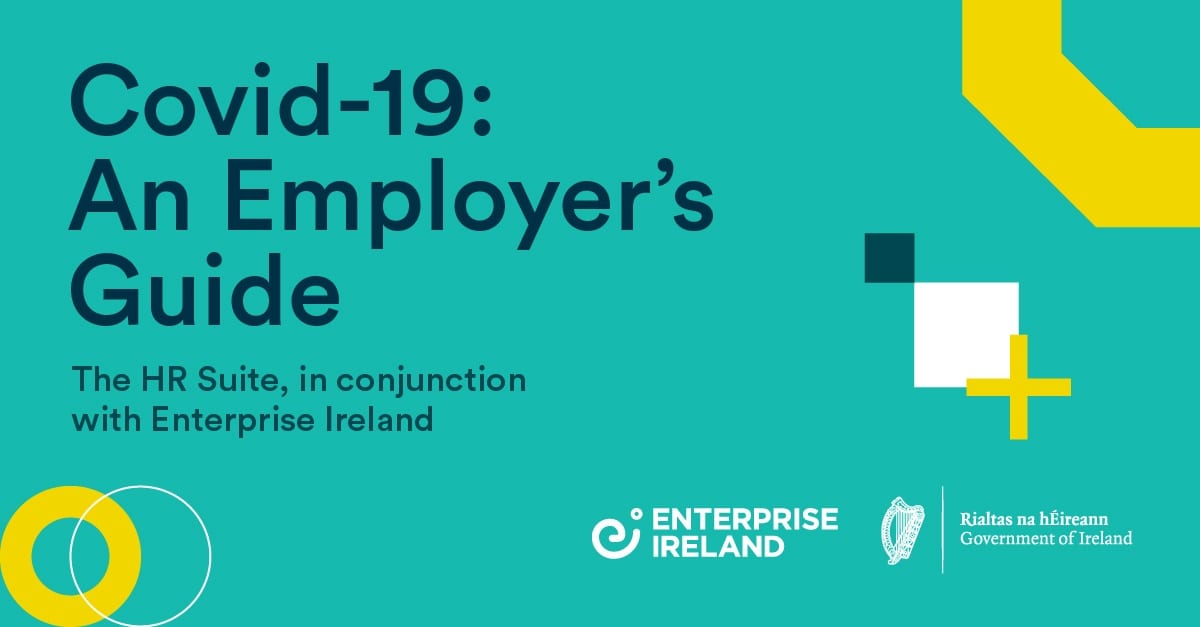Employers and people managers around the country, especially those in small and medium-sized enterprises (SMEs) have legal obligations relating to the coronavirus crisis.
In conjunction with Enterprise Ireland, The HR Suite has produced ‘Covid-19: An Employer’s Guide’, a detailed document that outlines everything business owners and managers need to know about their responsibilities towards employees during this challenging time.
Caroline McEnery, Managing Director of the HR Suite says,
“Some of the relevant legislation is new and the changes in it are unchartered for both employers and employees. Other legislation was already in place, but most people wouldn’t have had to worry about it before so it wouldn’t have been on their radar.”
New legislative changes
The main points employers need to be aware of is emergency legislation introduced by the Government related to employee wages and payments.
Companies who can show their turnover has reduced by more than 25% due to Covid-19 may qualify for the Wage Subsidy Scheme. This provides a temporary wage subsidy of up to 85% of take home pay up to a maximum weekly amount of €410 per week to affected companies to help them continue to pay their employees.
Separately, employees who lose their jobs qualify for the new Covid-19 Pandemic Unemployment Payment of €350 a week for up to 12 weeks.
A new Illness Benefit, paid at the same rate, is also available — for two weeks to any employee medically required to self-isolate and for up to 10 weeks for any employee diagnosed with Covid-19.
“The good news is that the process of processing the payments and benefits is very straightforward,” says McEnery. “It’s really important that you communicate all the above information as empathetically and sympathetically as you can to people who are already in a very emotional place.”
Relevant existing legislation
Among the older laws employees may now find relevant is the Redundancy Payments Acts 1967-2014. Under this act, people who are temporarily working fewer hours than they normally would can claim for a payment called Short Time Work Support. It is paid at the same level as Jobseeker’s Benefit (€203 a week), but on a pro rata basis for the days the person is not working.
Layoffs are also covered under the Redundancy Payments Acts. Employers can place employees on a period of temporary unpaid layoff if they believe they will be able to have them back in paid work again when the crisis passes. Employees who have been temporarily laid off qualify for the Covid-19 Pandemic Unemployment Payment, as outlined above.
“The only difference now is that if an employee were laid off previously, they could apply for redundancy after four weeks. That option is paused until the end of May [2020] and will be reviewed again then,” said McEnery.
Stay informed and communicate
With the Covid-19 situation remaining fluid, McEnery says employers should keep up to speed with what is happening and make sure their employees are in the loop too.
“Review your plans every two weeks in line with the latest Government and HSE guidance, while taking into account what is happening in your business,” she says, adding that employers should also make sure they keep communications channels open with their employees and make sure they are informed of any changes they should know about.



